We’re all human, which means we all, eventually, make a mistake or two. Some of us might make more mistakes than others, but in general it should be easy to understand that accidents happen and sometimes the best course of action is to forgive and carry on with your life. However, not everyone is happy with a simple apology–some people require a bit more…humiliation.
culture (Page 62)
Amazing as Japan’s metropolises are, after spending enough time in some of the most densely populated spots on the planet, urban fatigue starts to set in. There’s nothing like a getaway to the countryside to refresh your spirits after one too many days scurrying around downtown in packed train and subway cars.
The Shirakawa-go district, located in Gifu Prefecture, is close enough to Tokyo or Osaka that it makes an easy weekend escape for residents, as well as a simple side trip for overseas tourists crisscrossing the country. In terms of atmosphere, though, Shirakawa-go is worlds away from Japan’s largest cities.
Recently, tourists in Japan have been flocking to Kappabashi-dori, also known as Kitchen Town, before returning to their home countries. They come to the small shopping area located between Ueno and Asakusa, Tokyo in search of a hot souvenir item not entirely unique to Japan.
Just as in other countries, having a high-power, high-paying job such as doctor or banker will do a lot to expand a bachelor’s potential dating pool in Japan. Your profession is a reflection of, and at the same time an influence on, your values and identity. As in most countries, it’s inevitable that when first meeting someone, they’ll use your line of work as a shortcut to try to figure out how compatible you’ll be romantically. Success is always attractive, and there’s no quicker way to communicate it than through wealth.
But money isn’t everything, of course! Sometimes more important than number of yen in your bank account is how you earn them, as shown in a recent online survey that found nine occupations Japanese women find attractive in a potential boyfriend.
If you were asked to think of a traditional Korean food, kimchi would most likely come to mind. If you’re unfamiliar with the dish, it’s a fermented, rather spicy, side dish made up of vegetables and various seasonings, and it forms the staple ingredient for hundreds of different Korean dishes. With kimchi valued so highly, it is perhaps no surprise that the Korean government wants to see it classified as intangible cultural heritage.
Everyone hated studying when they were kids. Hell, everyone hated studying in college. That’s why you sat up on the top floor of the dorm with both a textbook and a beer open and somehow convinced yourself that studying drunk was totally cool as long as you were also drunk while taking the test.
But now a South Korean company has made it possible for kids and college students alike to get some hardcore studying done by creating a study prison that you may also be able to poop in because it totally looks like an old-timey latrine.
For many women, the act of putting on makeup gives them the opportunity to enhance their natural features and make themselves look more attractive. For anyone short on time, though, busting out the makeup kit before heading to work or out to meet friends can also be rather bothersome. With this in mind, reporter Anji, over at our sister site Pouch, did a bit of research to see if the process could be made any easier. What she found was a product called “Uniface” which is a mask that is designed to look exactly like a woman’s beautifully made-up face. Well, that’s the idea anyway…
How much do you know about daruma? Historically, there was the man called Daruma-daishi (aka Bhodhidharma), a Buddhist monk who is credited with spreading the practice of Zen Buddhism into China. Then, there are the daruma dolls, paper mache prayer tokens made and distributed throughout Japan for the sake of health, longevity, and success. These limbless dolls have an approximate 400-year history of bringing encouragement and good fortune to the people of Japan. However, in recent years the production and subsequent purchase of daruma has fallen. People are losing track of their daruma dolls, forgetting the purpose for which they serve, or at a loss of where to buy them in the first place.
Now, in an effort to bring back appreciation for the humble daruma, the Kagoyaka company in Yamanashi Prefecture is modernizing the traditional doll into something they call the Koshu~Color Daruma.
Even if you can’t understand what’s being said on Japanese TV, it’s difficult to miss the fact that nearly every TV spot and, for that matter, a good chunk of print ads, feature Japanese celebrities shucking various products.
To the Western eye, this can be a little baffling. Sure, sometimes commercials in English-speaking countries will fall back on (mostly) has-been stars to lend credibility to this or that used car dealership or diet product, but most of the time Western commercials star everyday folks. Most surmise this is so the consumer – his/herself most likely an everyman/woman – feels an emotional connection with the ad.
On the other hand, Japanese ad agencies hire TV and movie stars much, if not most, of the time. So prevalent is the practice that Western stars aren’t above traveling to Japan Lost in Translation-style for a week or so of juggling live human beings and shouting broken-English catchphrases for a round of Japanese ads ending in a big payday.
Thanks to the wonder of the internet, unlike in the past when we had to make do with what our local retailer had in stock or pay extortionate amounts for specialist items, with just a few clicks we have access an array of products from all over the world. As a result, many consumers are willing to try new and unusual things, and are using the net to get their hands on the products that they can’t get in their home country. Today we’d like to introduce you to a heartwarming story of internet shopping, great customer care, and of course sweet, delicious chocolate.
It was amazing how Gangnam Style and PSY’s brand of comedic dance music spread through our hearts making him a household name globally. Well, maybe not Japan for some reason, but everyone else couldn’t get enough of the chubby rapper and his horse dance.
It was a pop culture phenomenon that Korea could be proud for putting out, which leads us to the ongoing debate between Korean net users: How proud should a country be of its culture?
Currently there is a movement on the internet in Korea telling people to stop asking foreigners if they know who PSY is or if they’re aware of kimchi at every possible moment and just have faith that people abroad are aware and like Korean culture.
Just when you thought it was safe to delve into the back of your boyfriend’s closet, the hizamakura is back!
Literally translated as “lap pillow,” hizamakura — cushions designed to look like the tender thighs of a woman – were a huge hit about 10 years ago and were splashed all over Western websites and magazines alongside phrases such as “weird Japan”, with many articles asking whether the country’s men were really so lacking in social skills that they were forced to buy such products. In truth, many were purchased as gag items as the trend grew, but as their popularity faded hizamakura soon became associated more with otaku nerd culture and became a much less common sight.
Reports suggest, however, that a new line of lap pillows going on sale at Tokyo’s Narita Airport are bringing the trend back and they’re selling better than ever.
There’s a saying in Japan that you should have both eyes open before you decide to get married, and one eye shut after you walk down the aisle. It’s sound advice, as you definitely need to know what you’re getting into before you pledge to share your life with someone. At the same time, spending every day together is bound to bring to light the little imperfections that people naturally have (Mrs. Baseel excepted, of course), and it’s important not to get too worked up over them.
Of course, the inevitable result of trying to keep one eye perpetually closed is a wicked eye-cramp, so eventually you’re going to have to open it back up and notice something about your partner that drives you up the wall. Japanese firm Neo Marketing recently surveyed married women on the things their husbands do that they just can’t overlook.
Thirty-Six Views of Mt. Fuji is a series of 36 masterpieces by Katsushika Hokusai in the medium of ukiyoe woodblock printing. Even if the name doesn’t ring a bell, you certainly must have caught a glimpse of the iconic The Great Wave off Kanagawa (above) once or twice somewhere, or maybe you saw a Japanese passport encased in South Wind, Clear Sky.
A new non-profit organization with the aim of conserving the newly appointed World Heritage Site is using these famous pieces of art as the theme for a new fundraising campaign. However, instead of limiting themselves to woodblock prints, Thirty-Six [ _____ ] of Mt. Fuji Project is taking out the “Views” and opening it up to any form of artistic expression such as “Thirty-Six Songs of Mt. Fuji” or “Thirty-Six Sweets of Mt. Fuji”.
In 2010, Nara City in Nara Prefecture celebrated the 1,300th anniversary since becoming the imperial capital of Japan. During its relatively brief time as capital, the city flourished in culture so that even today the area is filled with ruins and relics of it rich distant past.
To have such a city overflowing with cultural heritage representing a romantic period in the history of Japan is both awesome and, well, a royal pain in the butt for anyone who wants to develop land there.
Just ask one poor guy, who tried to build a home to start his life in only to be shot down five times in a row after ruins were found on his land. Distraught and with nowhere else to turn he posted his woes on internet advice site MyNavi News Q & A for help. Here is his translated post.
Starbucks and virtually every other coffee shop worthy of faux hipster attention (the real hipsters having moved on to places that use siphons and play accordion music) have become synonymous with scenes of people using laptop computers in recent years, with rows of patrons sipping from paper cups while idly clicking, scrolling, pinching to zoom and staring lazily at their screens. Some even make temporary offices out of their few square feet of space, paying their rent in cups of joe and watched by hawk-eyed staff whose warm smiles drop a millimetre for every second a small cafe latte is nursed just that little bit too long.
For the rest of us, though, these table-hogging laptop luggers are a source of genuine intrigue. “What on earth could they be doing?” we wonder to ourselves, irked that they’ve taken all the good seats. “Are they actually working over there or are they just scrolling through photos on Facebook and tapping LOL into comment boxes?”
Japan’s My Navi News too was keen to know exactly what the folks who camp out at Starbucks are actually doing while the rest of us are engaging in conversations or staring awkwardly at the floor after making eye-contact one too many times with the cute barista, and put together a survey to find out. Let’s take a look at their findings.
It’s a little-known fact that until the Meiji era (1868-1912), the ordinary men and women of Japan did not have surnames. Rather, those names were reserved for people in positions of power, nobility, or those of noted artistic ability.
There are an estimated 100,000 family names in Japan — much more than in many Western countries, and vastly more than in neighbouring Korea and China — however what’s curious is that of these surnames 10 are incredibly common, with millions of people sharing the exact same moniker. If you’re on your way to Japan or learning the language, knowing how to read and pronounce at least a few of these will almost certainly get you out of a jam at some point or other, so allow us to introduce Japan’s 10 most common surnames, their meanings, and a few fun facts on top, just because we’re nice like that and we like your face.
Fall in Japan is a very special time of year. The leaves go from green to a plethora of gorgeous colors, the hellish summer heat and constant cacophony of cicadas finally relent, and the legendary McDonald’s Tsukimi Burger becomes available to stuff into your eager face by the sack full. This year, fall is even more special, as McDonald’s is expanding the Tsukimi Burger lineup to four different delicious sandwiches. Be still, my tightening arteries!
China – and to a large extent, Japan – seems to have an unhealthy obsession with any woman of above-average attractiveness performing some action that attractive women aren’t typically known for.
The Chinese media has serialized this concept to the point that we’ve seen them make a fuss over “hot girl cops,” “hot girl soldiers,” heck, even “hot girl bus drivers.” It seems like any time a cute girl does anything other than breath, Asia goes completely crazy.
And now, just when you thought the concept couldn’t jump the shark more spectacularly, we now have “hot girl archer.”
Shingen mochi – a relatively common wagashi Japanese sweet similar to the more well-known warabi mocha – is a treat made from pounded rice lightly coated in roasted soybean flour (kinako) meant to be drizzled with syrup before consumption.
It comes in a plastic container which is then wrapped in a decorative plastic sheet and sealed with a small, flat spear-like utensil meant to skewer the mochi with while eating. That plastic sheet is also the key to the “proper” way of eating shingen mochi.
Unfortunately for anyone who has consumed shingen mochi until now, the manufacturer’s marketing department decided not to tell even one single person how to properly eat their product. Thankfully, a helpful YouTuber here in Japan has shared a video showing the correct way to eat this traditional sweet. Find out after the break.



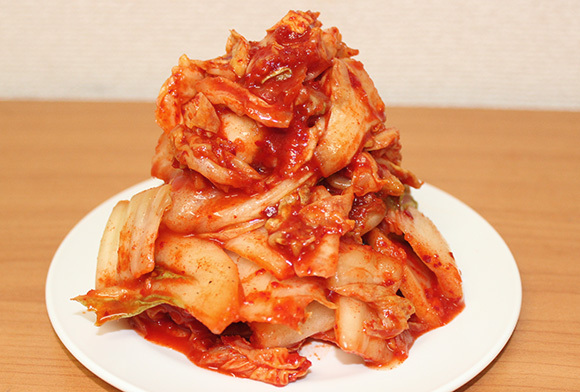
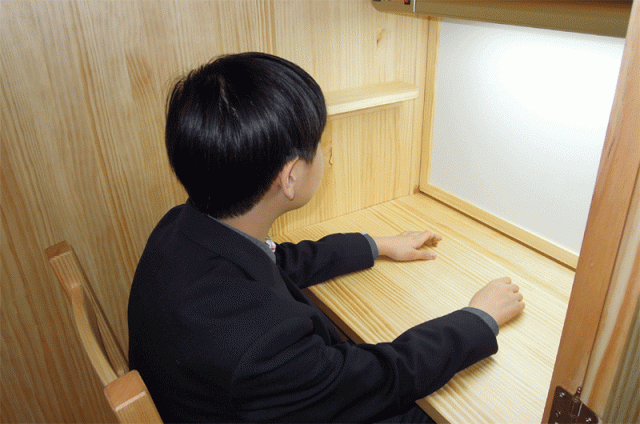

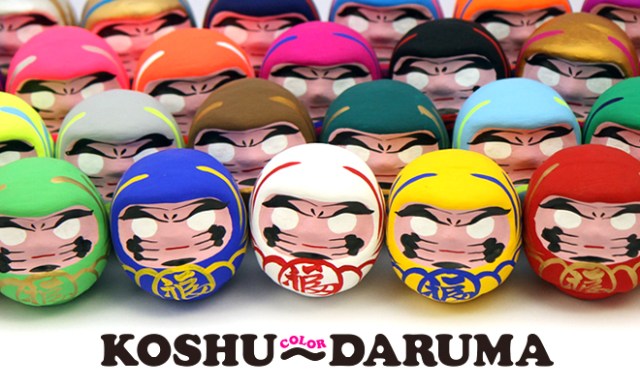



![Thirty-Six [ ________ ] of Mt. Fuji Project has a view of conserving the iconic mountain Thirty-Six [ ________ ] of Mt. Fuji Project has a view of conserving the iconic mountain](https://soranews24.com/wp-content/uploads/sites/3/2013/08/great_wave_off_kanagawa2.jpg?w=640)


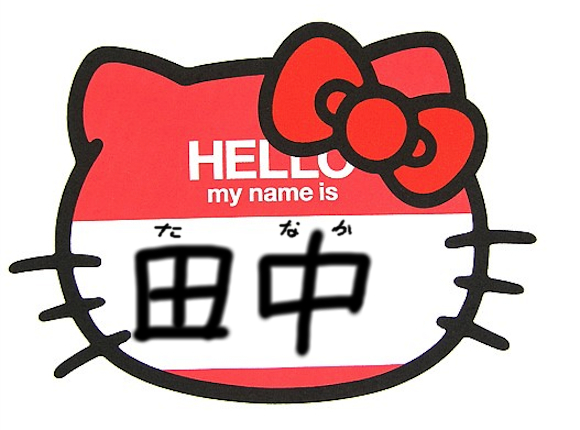


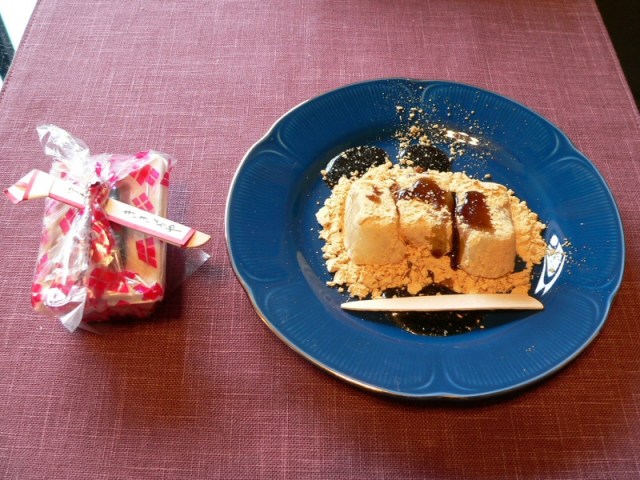
 Japan’s newest Shinkansen has no seats…or passengers [Video]
Japan’s newest Shinkansen has no seats…or passengers [Video] Foreigners accounting for over 80 percent of off-course skiers needing rescue in Japan’s Hokkaido
Foreigners accounting for over 80 percent of off-course skiers needing rescue in Japan’s Hokkaido Our reporter is willing to die on the pseudo-Italian restaurant Olive Hill
Our reporter is willing to die on the pseudo-Italian restaurant Olive Hill McDonald’s Japan hack: What happens when you put an apple pie inside a Big Mac?
McDonald’s Japan hack: What happens when you put an apple pie inside a Big Mac? A look back on 40 years of Japanese schools banning stuff
A look back on 40 years of Japanese schools banning stuff Man in Japan takes four parakeets hostage in attempt to force woman to meet with him
Man in Japan takes four parakeets hostage in attempt to force woman to meet with him Man arrested in Japan after leaving car in coin parking lot for six years, racking up three-million-yen bill
Man arrested in Japan after leaving car in coin parking lot for six years, racking up three-million-yen bill Japan law lets you claim reward for finding lost property, man may have scammed it over 60 times
Japan law lets you claim reward for finding lost property, man may have scammed it over 60 times Japan has omurice chocolate, and the weirdest thing isn’t how it tastes
Japan has omurice chocolate, and the weirdest thing isn’t how it tastes A spotlight on Japanese singles figure skating: Jumping into the 2026 Olympics【Pt. II】
A spotlight on Japanese singles figure skating: Jumping into the 2026 Olympics【Pt. II】 Is China’s don’t-go-to-Japan warning affecting the lines at a popular Tokyo gyukatsu restaurant?
Is China’s don’t-go-to-Japan warning affecting the lines at a popular Tokyo gyukatsu restaurant? Three beautiful places to see Japan’s plum blossoms after starting your day in downtown Tokyo
Three beautiful places to see Japan’s plum blossoms after starting your day in downtown Tokyo Downloads of 39-year-old Guns N’ Roses song increase 12,166 percent thanks to Gundam
Downloads of 39-year-old Guns N’ Roses song increase 12,166 percent thanks to Gundam Cherry blossom forecasts map shows Japan’s OTHER sakura season is starting right now
Cherry blossom forecasts map shows Japan’s OTHER sakura season is starting right now Take a trip to Japan’s Dododo Land, the most irritating place on Earth
Take a trip to Japan’s Dododo Land, the most irritating place on Earth Huge Evangelion Unit-01 head appearing in lights in Japan to celebrate anime’s 30th anniversary
Huge Evangelion Unit-01 head appearing in lights in Japan to celebrate anime’s 30th anniversary Family Mart releases huge range of cute sweets for Cat Day in Japan
Family Mart releases huge range of cute sweets for Cat Day in Japan Japan’s first all-matcha ramen restaurant is now open in Kyoto【Photos】
Japan’s first all-matcha ramen restaurant is now open in Kyoto【Photos】 7-Eleven Japan sells freshly baked pizzas…but are they any good?
7-Eleven Japan sells freshly baked pizzas…but are they any good? New Studio Ghibli stamps leave an impression on your stationery…and your heart
New Studio Ghibli stamps leave an impression on your stationery…and your heart Starbucks Japan releases new drinkware and goods for Valentine’s Day
Starbucks Japan releases new drinkware and goods for Valentine’s Day Japan releases first official sakura cherry blossom forecast for 2026
Japan releases first official sakura cherry blossom forecast for 2026 Archfiend Hello Kitty appears as Sanrio launches new team-up with Yu-Gi-Oh【Pics】
Archfiend Hello Kitty appears as Sanrio launches new team-up with Yu-Gi-Oh【Pics】 China’s don’t-go-to-Japan warning looks to be affecting tourist crowds on Miyajima
China’s don’t-go-to-Japan warning looks to be affecting tourist crowds on Miyajima Starbucks Japan releases new Frappuccino and latte for Valentine’s Day
Starbucks Japan releases new Frappuccino and latte for Valentine’s Day Studio Ghibli releases new “komorebi” plush toys from Princess Mononoke and Spirited Away
Studio Ghibli releases new “komorebi” plush toys from Princess Mononoke and Spirited Away Yokai are descending upon Tokyo this spring in the latest immersive art experience
Yokai are descending upon Tokyo this spring in the latest immersive art experience Japan’s Naruto theme park now offering real-world version of Minato’s kunai ninja weapon
Japan’s Naruto theme park now offering real-world version of Minato’s kunai ninja weapon Survey asks foreign tourists what bothered them in Japan, more than half gave same answer
Survey asks foreign tourists what bothered them in Japan, more than half gave same answer Japan’s human washing machines will go on sale to general public, demos to be held in Tokyo
Japan’s human washing machines will go on sale to general public, demos to be held in Tokyo We deeply regret going into this tunnel on our walk in the mountains of Japan
We deeply regret going into this tunnel on our walk in the mountains of Japan Studio Ghibli releases Kodama forest spirits from Princess Mononoke to light up your home
Studio Ghibli releases Kodama forest spirits from Princess Mononoke to light up your home Major Japanese hotel chain says reservations via overseas booking sites may not be valid
Major Japanese hotel chain says reservations via overseas booking sites may not be valid Put sesame oil in your coffee? Japanese maker says it’s the best way to start your day【Taste test】
Put sesame oil in your coffee? Japanese maker says it’s the best way to start your day【Taste test】 No more using real katana for tourism activities, Japan’s National Police Agency says
No more using real katana for tourism activities, Japan’s National Police Agency says Starbucks Japan reveals new sakura drinkware collection, inspired by evening cherry blossoms
Starbucks Japan reveals new sakura drinkware collection, inspired by evening cherry blossoms Updated cherry blossom forecast shows extra-long sakura season for Japan this year
Updated cherry blossom forecast shows extra-long sakura season for Japan this year Man in Japan takes four parakeets hostage in attempt to force woman to meet with him
Man in Japan takes four parakeets hostage in attempt to force woman to meet with him Man arrested in Japan after leaving car in coin parking lot for six years, racking up three-million-yen bill
Man arrested in Japan after leaving car in coin parking lot for six years, racking up three-million-yen bill Japan law lets you claim reward for finding lost property, man may have scammed it over 60 times
Japan law lets you claim reward for finding lost property, man may have scammed it over 60 times Japan has omurice chocolate, and the weirdest thing isn’t how it tastes
Japan has omurice chocolate, and the weirdest thing isn’t how it tastes A spotlight on Japanese singles figure skating: Jumping into the 2026 Olympics【Pt. II】
A spotlight on Japanese singles figure skating: Jumping into the 2026 Olympics【Pt. II】 Ghost in the Sheel goes traditional with Japanese porcelain Tachikoma robots, only 50 to be made
Ghost in the Sheel goes traditional with Japanese porcelain Tachikoma robots, only 50 to be made New Family Mart cinema opens inside Japanese airport
New Family Mart cinema opens inside Japanese airport Japan is in the grip of sticker fever and no one is safe, including us
Japan is in the grip of sticker fever and no one is safe, including us The Japanese ‘80s are back at this Tokyo photo studio that turns you into a Bubble Era-idol【Pics】
The Japanese ‘80s are back at this Tokyo photo studio that turns you into a Bubble Era-idol【Pics】 Face to face with Ibaraki’s giant Daidarabotchi, not so bad after all and a bit of a looker
Face to face with Ibaraki’s giant Daidarabotchi, not so bad after all and a bit of a looker How to try the viral 7-Eleven smoothie hack in Japan
How to try the viral 7-Eleven smoothie hack in Japan Japan’s first all-matcha ramen restaurant is now open in Kyoto【Photos】
Japan’s first all-matcha ramen restaurant is now open in Kyoto【Photos】